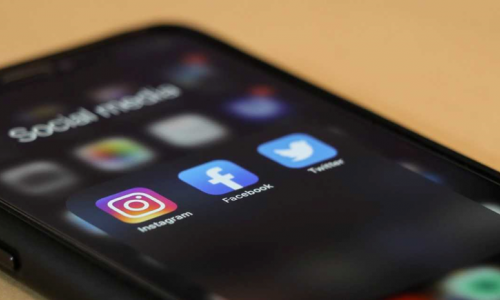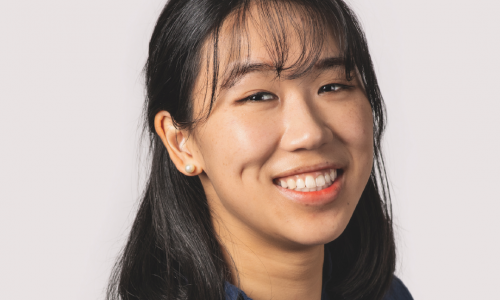
My first ever counselling session. My first professional conference presentation. Defending my thesis. Pretty much any "first day on the job" I've ever had. Those last swollen seconds between "set" and the sound of the starting gun at the 100 metre event at high school track and field meets. An odd combination of sentences, but they all illustrate a sickly sweet combination of pure excitement and sheer terror, which is something I've experienced many times. It also often strikes me that these are somewhat contradictory emotional experiences.
I wouldn't expect that to stop any time soon. Life is full of contradictions, especially when emotions are taken into account - and careers for that matter. This isn't always easy to acknowledge, and it can be incredibly difficult to act on, but it's also an inescapable fact of life, and as such, of career development.
Students often feel bad about contradictions in their career story, I suspect because there are a lot of societal pressures that discourage the acceptance of contradiction. My hope for this article is to encourage readers to question those pressures, and encourage an attitude that tolerates and perhaps even promotes contradiction.
Have you ever wanted something and not wanted it at the same time? Felt a certain way about yourself in some situations, and oppositely in others? With enough self-awareness, you're bound to learn that even the basic qualities of your personality may fundamentally conflict with one another. I've had clients tell me they are both outgoing and shy, planful and spontaneous, stubborn and accommodating, imaginative and concrete.
This is only a problem through certain theoretical lenses. Unfortunately, many of the lenses we're encouraged to see the world through (at least here in North America) are simply not that tolerant of contradiction. The individualism underlying our busy lives is predicated on the assumption that a self is a distinct, self-sufficient, unique, and contained entity, with absolute and often measurable qualities.
"We" prefer certainty, and are usually uncomfortable with ambiguity. We prefer research that is reductionist as opposed to holistic - that is, we seek to understand things primarily by breaking them down into smaller and smaller pieces, instead of looking at the broader, more inclusive picture. As a society, we are incredibly positivist. What's that mean? Well, in order to explain that I'd have to through another unpleasant word at you - epistomology.
An epistemology is essentially a way of knowing something. It actually translates from Latin as "the study of knowledge." If you abide by a positivist epistemology, your way of knowing things is through observing them directly and measuring them. So, something is either there, or it's not - there is no in-between. There is only ever one truth, and it is observable and measurable. Of course, the scientific method is based for the most part on this way of gaining knowledge, and has of course led to countless discoveries and advances that would otherwise have been impossible.
The problem is that there are a whole bunch of situations in which it's difficult to focus down to one objective truth. What if two things are true? What if those truths oppose one another? What if they are both true at the same time?
For these situations, we need a different way of knowing. We need an epistemology that can handle some subjectivity and multiple possible truths. Most of these ways of knowing fall under the category of post-modernism, which (to oversimplify a bit) states that knowledge is subjective. That is, the truth depends on the lens that you view it through, and is often constructed in the moment as opposed to having necessarily existed before that. Every person's experience will in some sense be fundamentally different, and they may perceive or explain the same event or phenomenon in different ways as a result. Contradictions aren't a problem at all if we acknowledge that everything depends on viewpoint in the first place.
We can also look to other parts of the world - where cultures tend to be more collectivist than individualist - to see a different perspective on contradictions. Many eastern cultures, for instance, define self-hood quite a bit differently than we do in the west. If an individualist self is a contained bubble separate from every other contained bubble, a collectivist self is a semi-permeable bubble whose boundaries include other semi-permeable bubbles in close proximity. In other words, the concept of a self in collectivist cultures includes a relational component. People in collectivist cultures tend to define themselves by their relationships with others in close social groups, while individualists usually define themselves by the qualities that separate them from others.
Just as collectivist selves can be essentially be comprised of multiple people in this regard, many eastern philosophies place high emphasis on holism and acceptance of contradiction. A great example of this is the Yin Yang symbol, as pictured above. The Yin half of the symbol is separate from the Yan half, while at the same time containing a piece of Yan within it, and vice versa. The Yin and Yang parts of the symbol don't really have meaning when considered apart from one another. They are both separate from and embodied in each other. The same and different. To reduce the Yin and Yan halves to singular entities would be to ignore the larger context that provides the symbol its ultimate meaning.
I've observed students change from feeling conflicted, torn, and adversarial in their relationships with themselves to being able to accept their own intrapersonal diversity and subjectivity, in part due to an acceptance and appreciation of their own contradictions.
So, if you're feeling uneasy about the different parts of yourself, you may want to consider asking some questions.
-
What strengths or qualities do I possess that contradict one another?
-
Under what conditions do those qualities represent a truth about myself or my career story?
-
What can I do to allow each of those qualities to thrive?
Next time, some more big words, and how they relate to your career! Did somebody say "dialectical constructivism?"















